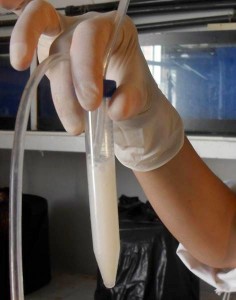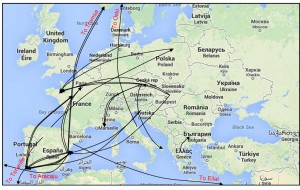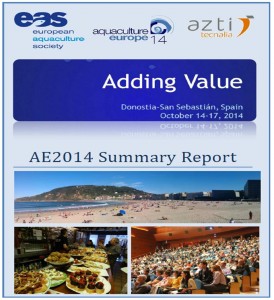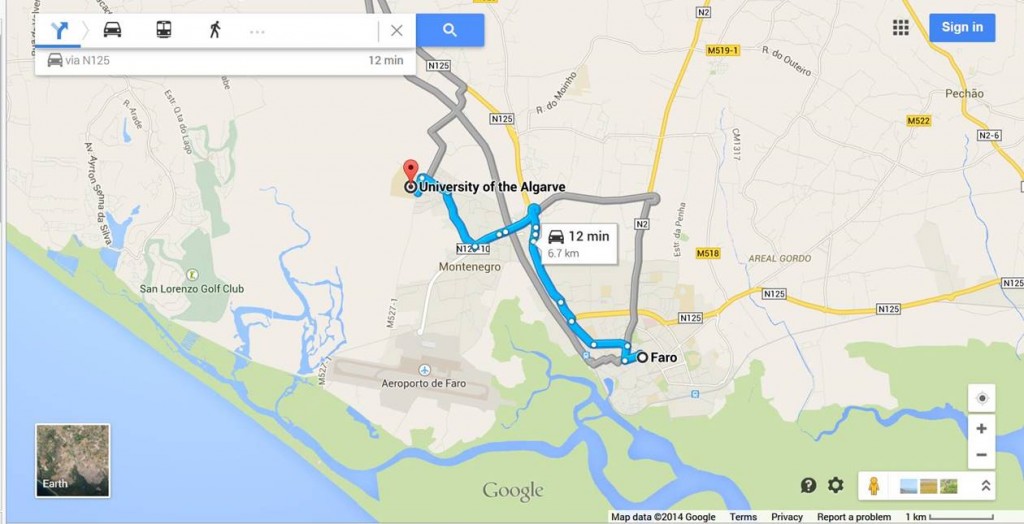Second announcement and programme
DATES: 16th to 20th March 2015
PLACE: Faculty of Fisheries and Protection of Waters USB, Vodnany, Czech Republic
Deadline for applications extended to January 20th.
MAIN TRAINERS FOR PRACTICE:
• H. Gadêlha: Wolfson Centre for Mathematical Biology, Mathematical Institute, University of Oxford
• C. Matthews, IBDML, CNRS, Marseille, France.
• C. Rouvière, Biologie du développement, CNRS, Villefranche sur mer, France.
• G. Prulières: Biologie du développement, CNRS, Villefranche sur mer, France.
LECTURERS:
• J. Cosson and G. Prokopchuk, FFPW USB, Vodnany, Czech Republic
Sperm motility recording; use of high-speed video camera
• C. Soler Vázquez, PROISER R+D S.L., Valencia, Spain
Presentation of some soft-wares = CASA (sperm motility parameters) and cell morphometry
• G. Prulières, Biologie du développement, CNRS, Villefranche sur mer, France
Application of fluorescence and confocal microscopy to aquatic eggs
• R. Rychtarikova, FFPW USB, ICS, Nove Hrady, Czech Republic
Analysis of cell interior – 3D reconstruction
• D. Stys, FFPW USB, ICS, Nove Hrady, Czech Republic
Principles of image build-up in the microscope
• T. Nahlik, FFPW USB, ICS, Nove Hrady, Czech Republic
Training on the use of software dedicated to follow-up of microscope images
• H. Gadêlha, Dept of Applied Mathematics and Theoretical Physics, Cambridge, UK
Modelisation and quantitative predictions of cell behavior
• B. Dzyuba, FFPW USB, Vodnany, Czech Republic
Applications of CASA analysis to fish spermatozoa
TRAINEES: 12 maximum
PROGRAM MONDAY 16. 3. 2015
9:30 – 10:00 Registration (local fees)
10:00 – 10:30 Welcome introduction: Presentation of participants / round table
10:30 – 10:45 Coffee break
10:45 – 12:30 Presentation by D. Stys: Principles of image build-up in the microscope
12:30 – 13:30 Lunch break
13:30 – 15:30 Presentation by C. Soler Vázquez: Presentation of some soft-wares = CASA (sperm motility parameters) and cell morphometry
15:30 – 15:50 Coffee break
15:50 – 17:50 Presentations by C. Matthews and C. Rouvière: Fluorescence & overview of Fluorophores
PROGRAM TUESDAY 17. 3. 2015
9:00 – 10:30 Presentations by C. Matthews and C. Rouvière: Microscopy technics (Bright field / dark field / DIC / Phase / polarization / fluorescence)
10:30 – 10:45 Coffee break
10:45 – 12:30 Presentations by C. Matthews and C. Rouvière: Confocal microscopy
12:30 – 13:30 Lunch break
13:30 – 15:30 Practice 1 Group A; Practice 2 Group B; Practice 4 Groups C+D
15:30 – 15:50 Coffee break
15:50 – 17:50 Practice 1 Group C; Practice 2 Group D; Practice 4 Groups A+B
WEDNESDAY 18. 3. 2015
9:00 – 10:30 Presentations by C. Matthews and C. Rouvière: Optical sectioning microscopies
10:30 – 10:45 Coffee break
10:45 – 12:30 Presentations by C. Matthews and C. Rouvière: Image treatment and analysis
12:30 – 13:30 Lunch break
13:30 – 15:30 Practice 1 Group B; Practice 2 Group A; Practice 5 Groups C+D
15:30 – 15:50 Coffee break
15:50 – 17:50 Practice 1 Group D; Practice 2 Group C; Practice 5 Groups A+B
18:00 – 19:00 Practice 6 Groups A+B
THURSDAY 19. 3. 2015
9:00 – 10:30 Presentation by G. Prulière: Application of fluorescence and confocal microscopy to aquatic eggs
10:30 – 10:45 Coffee break
10:45 – 12:30 Practice 1, ImageJ software
12:30 – 13:30 Lunch break
13:30 – 15:30 Practice 2, “ImageJ” software
15:30 – 15:50 Coffee break
15:50 – 17:30 Practice / ImageJ macro
18:00 – 19:00 Practice 6 Group C+D
FRIDAY 20. 3. 2015
9:00 – 10:30 Presentation by R. Rychtarikova: Analysis of cell interior – 3D reconstruction
10:30 – 10:45 Coffee break
10:45 – 12:30 Presentation by H. Gadêlha: Modelisation and quantitative predictions of cell behavior
12:30 – 13:30 Lunch break
13:30 – 15:30 Presentation & training by T. Nahlik: Training on the use of software dedicated to follow-up of microscope images
15:30 – 15:50 Coffee break
15:50 – 17:00 Training by T. Nahlik (continued)
PRACTICE GROUPS:
4 people/ each group called A, B, C, D
Practice 1: Setting up the microscope, alignment, observations using different optical techniques
Practice 2: Confocal microscopy
Practice 3: Sperm motility (CASA)
Practice 4: fixation and immuno-staining on fixed oocytes 1/2
Practice 5: immuno-staining and mounting 2/2
Practice 6: quantitative cell behavior modelisation
Second announcement and programme Vodnany



